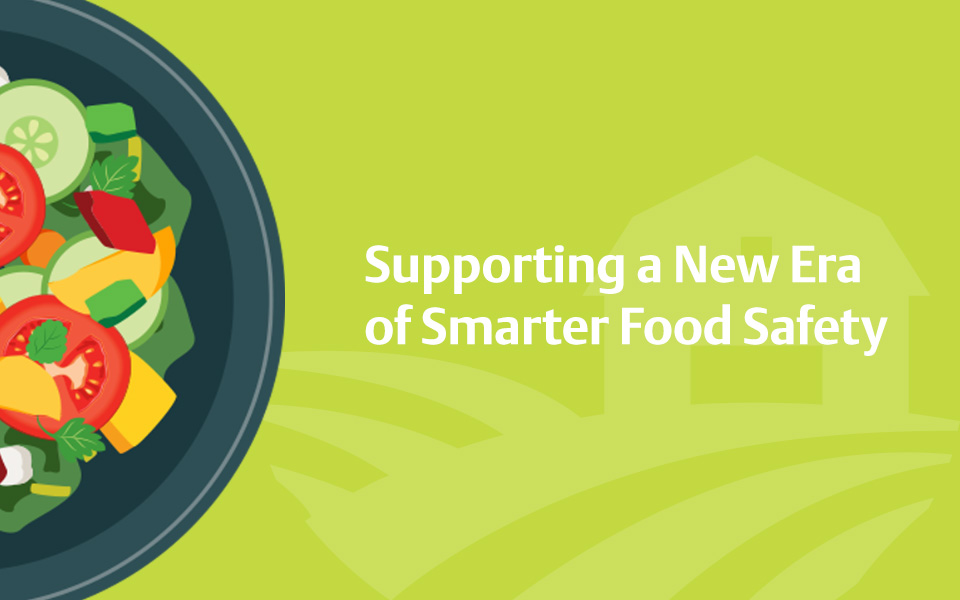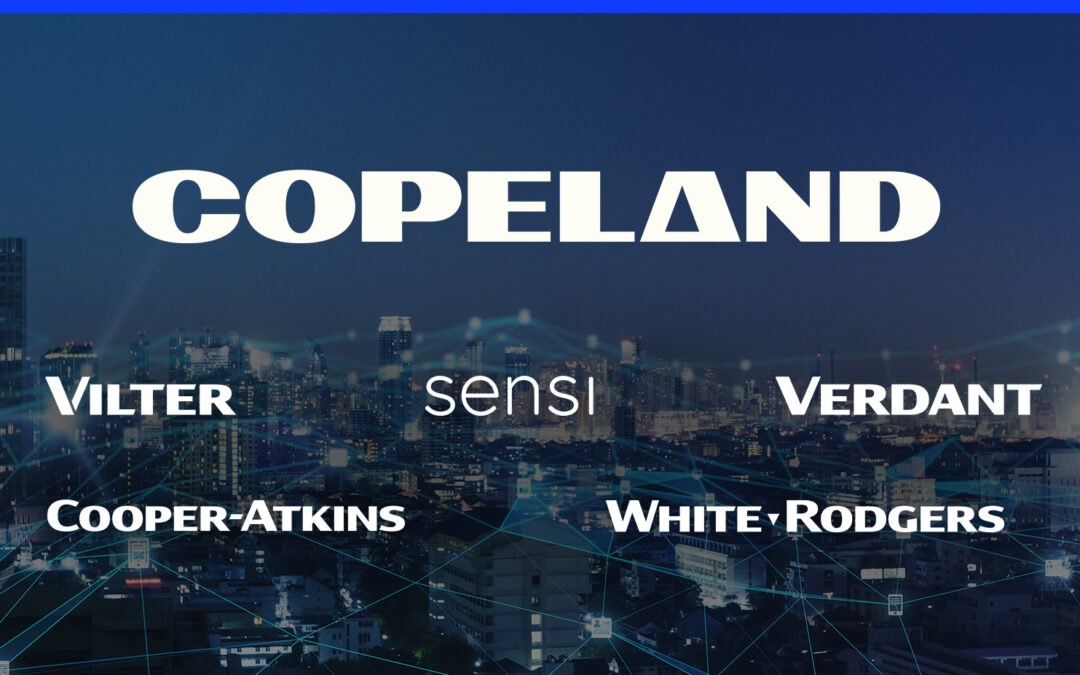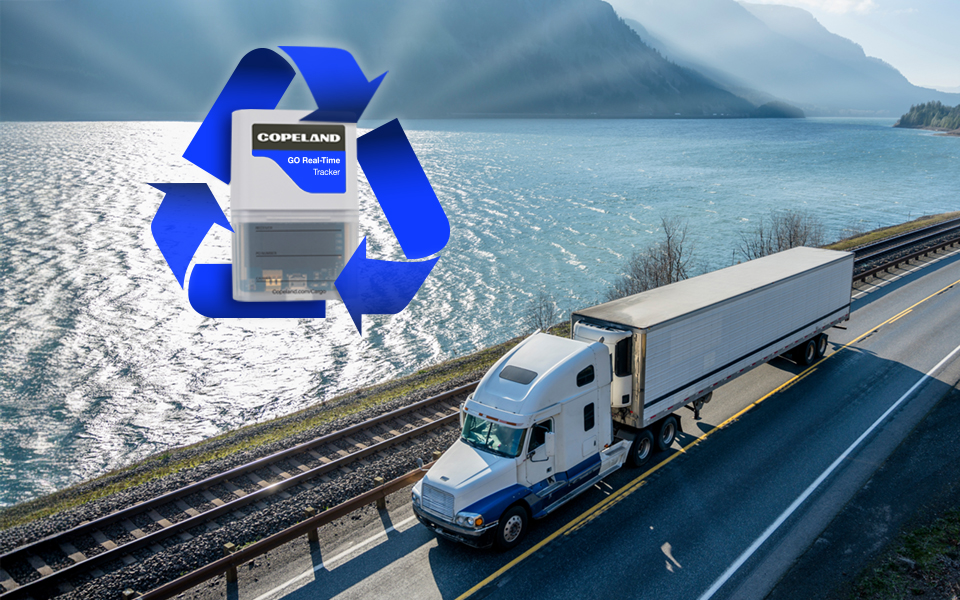*On June 1, 2023 Emerson’s Climate Technologies business became a new standalone company – Copeland. Though our name has changed, we are building on more than a century of HVACR innovation and industry leadership, and Copeland continues to offer the same products, industry stewardship, and learning opportunities you’ve grown to trust. Information found on this webpage posted before June 1, 2023 may contain our old name or branding, but you can be at ease knowing it was created with the knowledge and expertise of Copeland.
September is National Food Safety Education Month (NFSEM), a time when regulatory agencies — such as the Centers for Disease Control and Prevention (CDC) and the U.S. Food and Drug Administration (FDA) — raise awareness about the importance of preserving food safety and preventing foodborne illnesses. Cold chain complexities have escalated significantly in recent years. From food shortages and supply strains to changing consumer behaviors and the rise of e-commerce, this rapidly shifting marketplace presents a new set of challenges. Maintaining food quality and safety standards will require modern technologies that enable tighter integration, visibility and traceability of every link in the food cold chain — challenges that Copeland is uniquely qualified to address.

A technological blueprint for the future
Today, the FDA is recognizing the critical roles that modern technologies will play in ensuring food safety in an increasingly complex food supply chain. In 2021, it released its New Era of Smarter Food Safety initiative, creating a Blueprint for the Future that addresses the need for “real-time, data-driven and nimble approaches” for responding to emerging demands and helping to ensure “a strong and resilient food system”.
This blueprint outlines the FDA’s proposed approach for strengthening food safety initiatives over the coming decade, building upon its Food Safety Modernization Act (FSMA), which established science- and risk-based protections. Among these protections include the development and implementation of hazard analysis and critical control points (HACCP) methodologies anywhere food is shipped, handled and prepared.
An HACCP program — which has also been referred to as hazard analysis and risk-based prevention controls (HARPC) — establishes a systematic preventive approach to food safety by addressing the biological, chemical and physical hazards in production and preparatory processes. Stakeholders can leverage HACCP metrics in their quality assurance (QA) programs to help them monitor risks, drive adherence to food safety best practices, and achieve compliance with governing authorities.
At Copeland, we’re committed to supporting this blueprint by providing the data-driven tools and technologies which can be leveraged by key stakeholders at nearly every link in the food cold chain.
HACCP checklist — For many foodservice operations, manual tracking and documentation of HACCP metrics can be time-consuming and cumbersome. Copeland’s comprehensive foodservice platform software includes an HACCP checklist feature that’s designed to automate and streamline data collection and documentation into a user-friendly portal. This customizable software allows you to define tasks and checklists, establish critical limits and corrective actions, and assign checklists to employees for timely and accountable completion.
Foodservice mobile app — Designed to enable on-site HACCP data collection, the DCC HACCP Manager mobile app allows users to easily switch between different tasks and checklists — such as temperature readings and food preparation procedures — to simplify HACCP documentation and compliance. Restaurant employees can log tasks quickly, complete checklists efficiently, and use Wi-Fi to upload completed checklists to the cloud-based Foodservice portal. The app can be configured to trigger alerts for uncompleted checklists to drive prompt responses and take corrective actions.
Multi-function thermometer (MFT) — Our MFT is a hand-held, Bluetooth-enabled thermometer that effectively registers temperature data (internal, surface and air) and automatically transmits it to Copeland’s Foodservice platform software and mobile app. The MFT captures who is taking the temperature, applies a date/time stamp, and assigns a clear pass/fail status to every product reading — helping to keep HACCP records up to date and enable timely corrective actions.
Oversight portal for transport visibility — For stakeholders who need to monitor, track and record the temperature and location of in-transit perishable shipments, Copeland’s GO real-time trackers and loggers integrate seamlessly with our cloud-based Oversight portal to deliver real-time and historic insights into our customers’ cold chain networks. This robust solution alerts stakeholders immediately when there are temperature excursions, enabling them to respond quickly and address issues that might impact food quality or safety. Oversight software aggregates data points and leverages data analytics to uncover proactive opportunities for improvement and shed light on long-term trends.
These are just a few examples of the ever-expanding portfolio of connected software, mobile apps and products that Copeland is developing to help usher in the FDA’s New Era of Smarter Food Safety. Our data-driven technologies are enabling stakeholders to achieve improved visibility and establish proper food safety procedures when handling, preparing or transporting consumer goods. To learn more about how we’re helping to ensure food safety throughout the perishable cold chain, please visit our website.

Copeland Aligns its Family of Brands for the Future
As a critical milestone in our journey as a standalone company, Copeland is excited to unveil a...

Recycling Program Contributes to Supply Chain Sustainability
Copeland Is Your Partner for a Greener Supply Chain Throughout the perishable food supply chain,...
Industrial Heat Pumps Deliver Sustainability, Lifecycle Benefits in Food and Beverage Industry
The food and beverage industry faces increasing pressure to reduce scope 1, 2 and 3 emissions. In...
